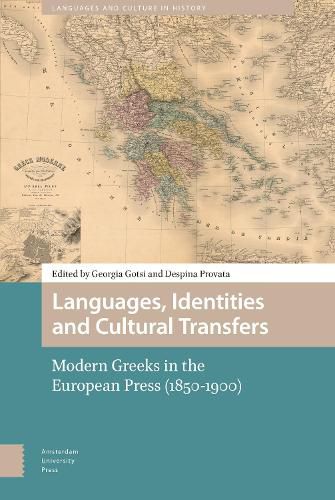Readings Newsletter
Become a Readings Member to make your shopping experience even easier.
Sign in or sign up for free!
You’re not far away from qualifying for FREE standard shipping within Australia
You’ve qualified for FREE standard shipping within Australia
The cart is loading…






What was the perception of Greece in Europe during the later nineteenth century, when the attraction of romantic philhellenism had waned? This volume focuses on the reception of medieval and modern Greece in the European press, rigorously analysing journals and newspapers published in England, France, Germany, Italy, and The Netherlands. The essays here suggest that reactions to the Greek state’s progress and irredentist desires were followed among the European intelligentsia. Concurrently, new scholarship on the historical development of the Greek language and vernacular literature enhanced the image of medieval and modern Greece. This volume’s contributors consider the press’s role in this Europewide exchange of ideas, explore the links between romantic and late philhellenism and underscore the scholarly nature of the latter. Moreover, they highlight the human aspects of cultural transfers by focusing on networks of mediators, publishers and scholarly collaborators. This context enhances our understanding of both the creation of Hellenic studies and the complex formation of the modern Greek identity.
$9.00 standard shipping within Australia
FREE standard shipping within Australia for orders over $100.00
Express & International shipping calculated at checkout
What was the perception of Greece in Europe during the later nineteenth century, when the attraction of romantic philhellenism had waned? This volume focuses on the reception of medieval and modern Greece in the European press, rigorously analysing journals and newspapers published in England, France, Germany, Italy, and The Netherlands. The essays here suggest that reactions to the Greek state’s progress and irredentist desires were followed among the European intelligentsia. Concurrently, new scholarship on the historical development of the Greek language and vernacular literature enhanced the image of medieval and modern Greece. This volume’s contributors consider the press’s role in this Europewide exchange of ideas, explore the links between romantic and late philhellenism and underscore the scholarly nature of the latter. Moreover, they highlight the human aspects of cultural transfers by focusing on networks of mediators, publishers and scholarly collaborators. This context enhances our understanding of both the creation of Hellenic studies and the complex formation of the modern Greek identity.